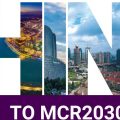In Dengfeng, China, global experts advance urban and community disaster preparedness

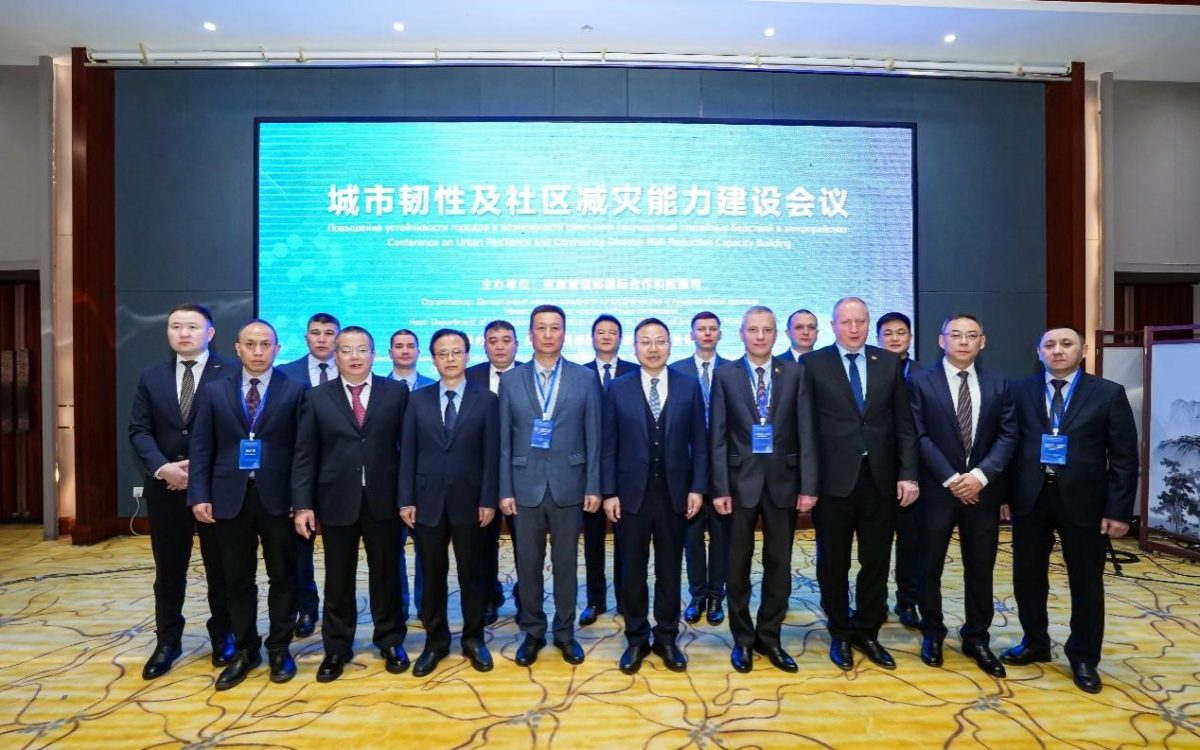
Group photo of key representatives at the Urban Resilience and Community Disaster Reduction Capacity Building event.
On 22-23 January 2026, the event “Urban Resilience and Community Disaster Risk Reduction Capacity Building” was successfully held in Dengfeng, China. The event was hosted by the Department of International Cooperation and Rescue of the Ministry of Emergency Management of China and organized by the National Institute of Natural Hazards, with support from the Henan Provincial Emergency Management Department, the Dengfeng Municipal People’s Government, and ICLEI – Local Governments for Sustainability.
Dengfeng, a historic city located at the foot of Mount Song in Henan Province, offers a unique blend of natural beauty and cultural heritage. Known worldwide as the home of the legendary Shaolin Temple, the city provides visitors with the opportunity to experience the profound traditions of Shaolin martial arts, Chan (Zen) Buddhism, and centuries-old architectural heritage. Nestled among scenic mountains, Dengfeng has long been a center of spiritual, cultural, and historical significance, making it an ideal destination to explore the deep connections between nature, culture, and resilience.
The event brought together representatives from the emergency management authorities of Belarus and Kyrgyzstan, as well as delegates from international organizations including the United Nations Office for Disaster Risk Reduction (UNDRR), the United Nations Development Programme (UNDP), and the Asian Development Bank (ADB). Experts, scholars, practitioners, and city representatives from the Making Cities Resilient 2030 (MCR2030) initiative were also invited. The discussion focused on natural disaster risk management, community-based disaster risk reduction, and urban resilience. The event aimed to advance the implementation of the consensus reached at the 2025 “Belt and Road” Ministerial Conference on Disaster Management, while further strengthening multilateral cooperation in global disaster governance.
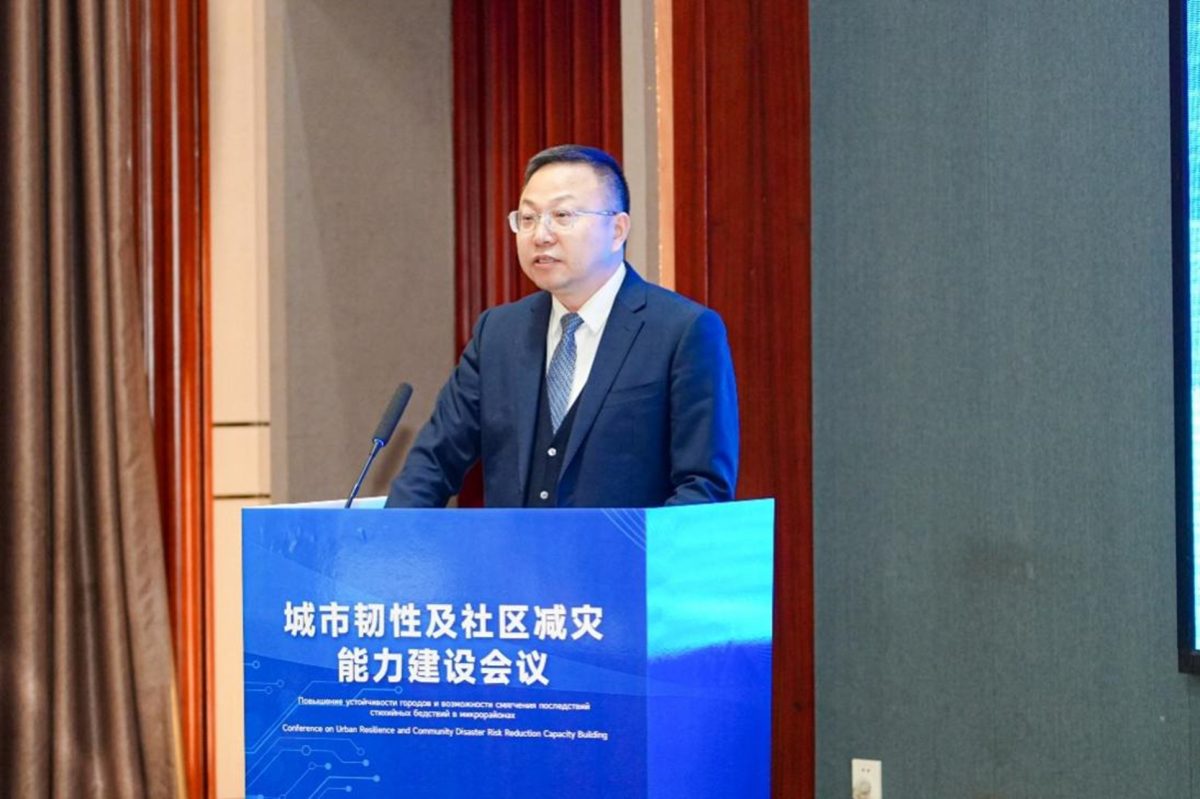
Opening remarks by Liu Shunzhang, Deputy Director General of the Department of International Cooperation and Rescue, MEM China.
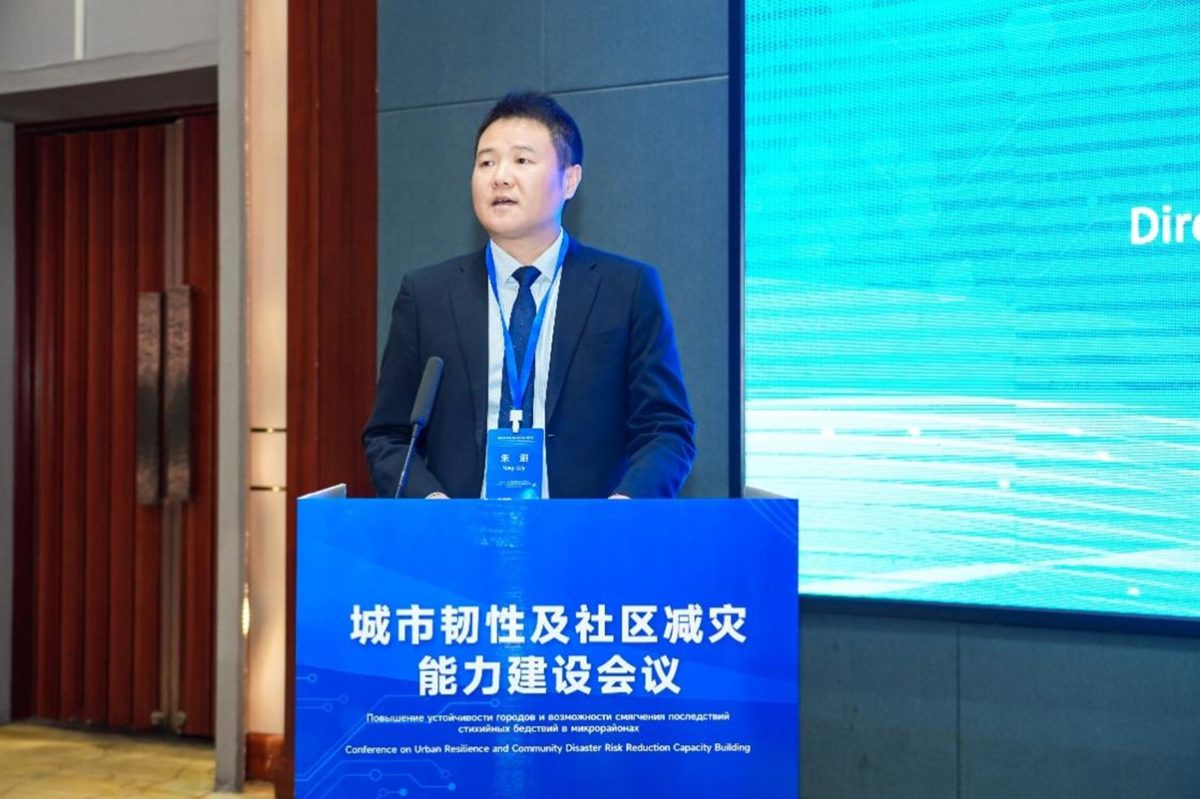
Opening remarks by Shu Zhu, Regional Director of ICLEI East Asia Secretariat.
During the opening ceremony, welcome remarks were delivered by Liu Shunzhang, Deputy Director General of the Department of International Cooperation and Rescue, Ministry of Emergency Management of China; Zhu Weiya, Deputy Director General of the Henan Provincial Emergency Management Department; Kang Rongxue, Vice President of the National Institute of Natural Hazards; Zhang Kuiwen, Vice Mayor of the Dengfeng Municipal People’s Government; and Shu Zhu, Regional Director of the ICLEI East Asia Secretariat.
In his address, Shu Zhu highlighted ICLEI’s nearly 30 years of global experience in advancing local-level green, low-carbon, and equitable transitions alongside resilient urban development. He emphasized that enhancing urban resilience is a systemic endeavorg that relies not only on infrastructure development but also on innovative urban governance models, strengthened community capacity building, deeper multi-stakeholder collaboration, and systematic integration of resilience principles into urban development planning.
Thematic Reports: Exploring Resilience from Theory to Practice
The thematic sessions featured in-depth presentations characterized by strong professional expertise and practical insights. Li Zheng, Deputy Division Director at the Ministry of Emergency Management (MEM) of China, shared Dengfeng’s experience as an “Integrated Disaster Reduction Model County.” Using the response to the “7.21” extreme flood event as a case study, he demonstrated the effectiveness of local systems in risk monitoring, emergency command and coordination, and post-disaster recovery.
Sanjay Bhatia, Head of the UNDRR Office for Northeast Asia (ONEA) and Global Education and Training Institute (GETI), introduced the Making Cities Resilient 2030 (MCR2030) initiative from a global perspective, outlining its core pillars, including risk assessment, integrated planning, and diversified financing mechanisms. Representatives from Belarus and Kyrgyzstan also presented their national strategies for addressing extreme weather events, forest fires, and industrial accidents.
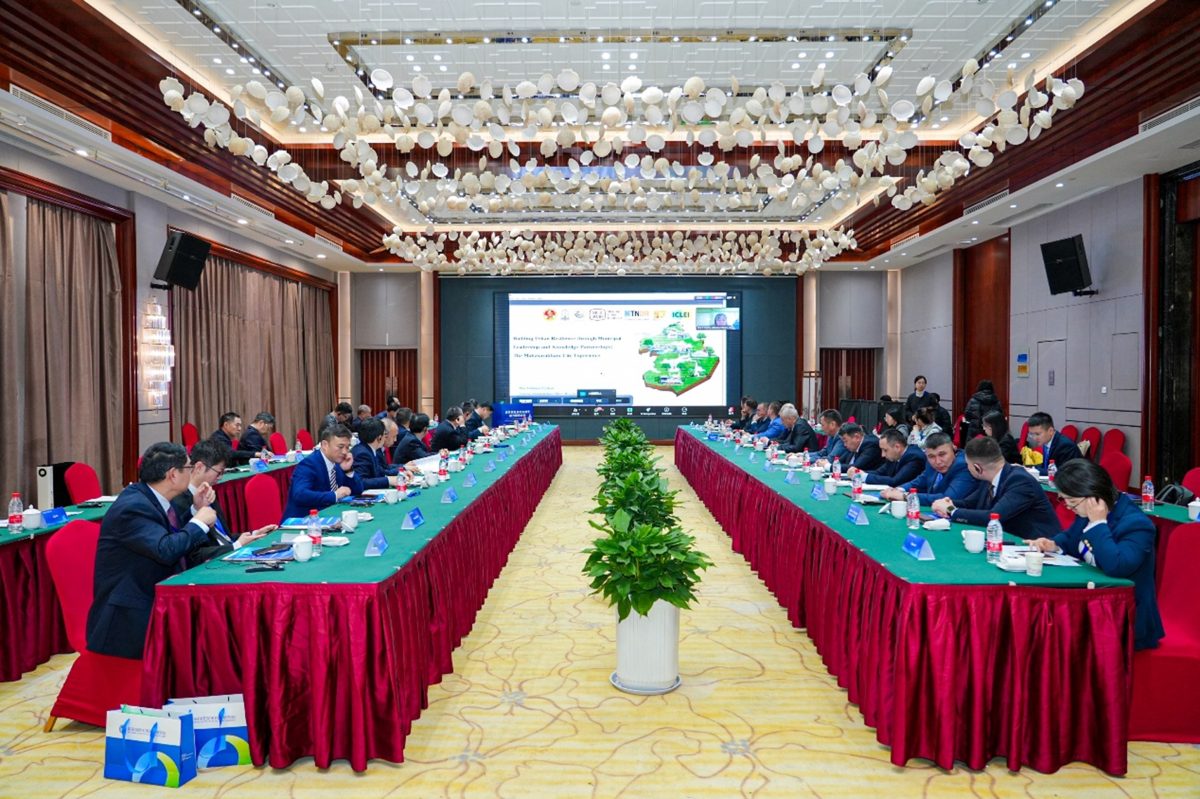
Conference venue.
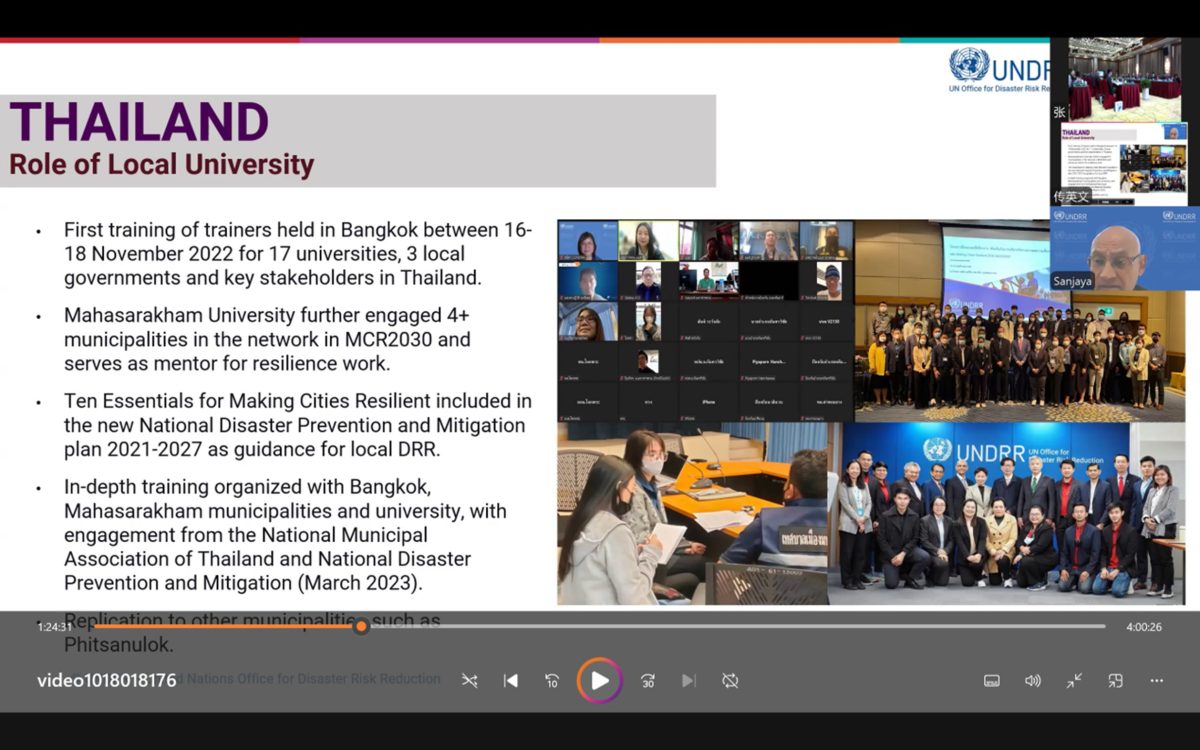
Sanjay Bhatia, Head of UNDRR ONEA & GETI, delivering the thematic report on MCR2030
During the two-day event, the thematic presentations covered diverse dimensions of resilience-building, combining theoretical depth with practical relevance and demonstrating a high level of professionalism and insight. More than ten experts, scholars, and practitioners from government agencies, research institutions, and international organizations shared research findings and field-based experiences tailored to different urban contexts and risk scenarios.
Guo Jiansheng, Deputy Division Director of the Risk Monitoring and Integrated Disaster Reduction Division at the Beijing Municipal Emergency Management Bureau, and Zhang Shengli, Chief Engineer of the Henan Emergency Management Technology Center, presented localized practices for advancing safe and resilient city development. They highlighted progress in risk monitoring and early warning systems, multi-hazard integrated prevention, and the translation of resilience principles into policy and implementation. Their presentations underscored that strengthened coordination mechanisms and enhanced technical support are essential for enabling cities to better manage the uncertainties associated with major disaster risks.
Professor Fu Benchen from the School of Architecture and Urban Planning at Shenzhen University examined the vulnerabilities of complex three-dimensional urban spaces—such as integrated transportation hubs—under extreme conditions including typhoons, earthquakes, and floods. He identified three key challenges: limited systemic resilience, insufficient precision in risk control, and inefficient emergency response. He further introduced strategic research approaches and technological pathways aimed at addressing these challenges.
Mr. Stanislav Kim, Regional Team Leader and Senior Advisor on Disaster Risk Reduction at the UNDP Bangkok Regional Hub, delivered a presentation entitled “Urban Resilience for Sustainable Development.” He outlined UNDP’s holistic approach and regional practices in mainstreaming disaster risk reduction, risk prevention, and climate adaptation into sustainable urban development strategies.
Representing member cities of the Making Cities Resilient 2030 (MCR2030) initiative, Dr. Pierpaolo Campostrini, Executive Director of Consortium for Managing Scientific Research on Venice Lagoon System (CORILA) (Italy), provided a systematic overview of Venice’s integrated strategies for addressing sea-level rise and climate risks. He explained the operational mechanisms of the MOSE adjustable barrier system and lagoon ecological restoration initiatives. Moving beyond engineering solutions, his presentation illustrated the complex task of balancing urban functionality, ecosystem integrity, and cultural heritage preservation under climate change, offering valuable insights for the adaptive management of historic cities.
Similarly, as an MCR2030 member city, the Municipality of Mahasarakham, Thailand, shared practical experiences in strengthening urban resilience through proactive municipal leadership and knowledge partnerships. Ms. Thidakaew Popithul, General Administrative Officer of the Municipality of Mahasarakham, demonstrated how the city effectively mobilizes resources, fosters cross-departmental collaboration, and localizes global resilience frameworks to meet local challenges, providing a complementary perspective from a rapidly urbanizing mid-sized city.
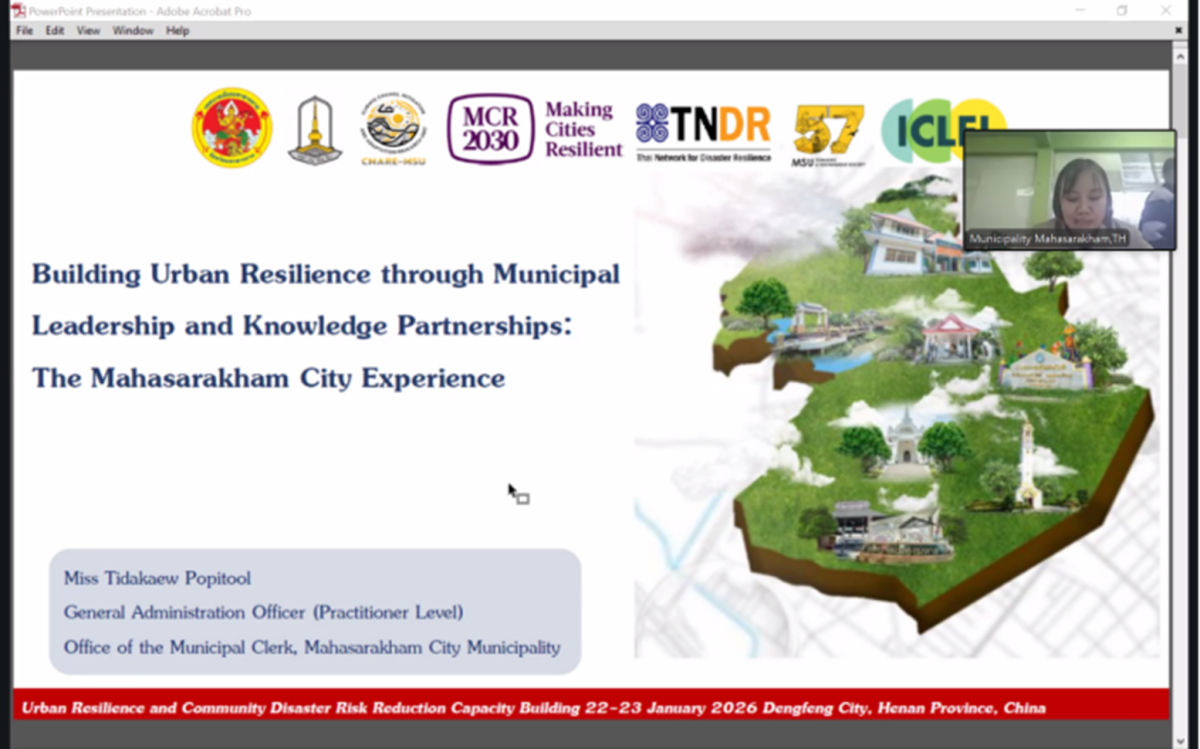
Ms. Thidakaew Popithul, General Administrative Officer from the Municipality of Mahasarakham, Thailand, delivering a thematic report.
Mr. Stefan Rau, Senior Urban Development Specialist at the Asian Development Bank (ADB), used the Pingxiang project in Jiangxi Province as a case study to elaborate on the integration of resilient infrastructure. He emphasized that in supporting the transformation of resource-based cities such as Pingxiang, multilateral development banks contribute not only financing but also comprehensive technical assistance—including integrated master planning, institutional capacity-building, and the transfer of international best practices—thereby creating replicable models for high-quality development.
Ms. Keli Wang, Senior Project Officer at the ICLEI Beijing Office, introduced the MCR2030 initiative from a local implementation perspective. She presented a resilience planning framework grounded in extensive global practice, structured around three key stages: Assessment, Action, and Acceleration.
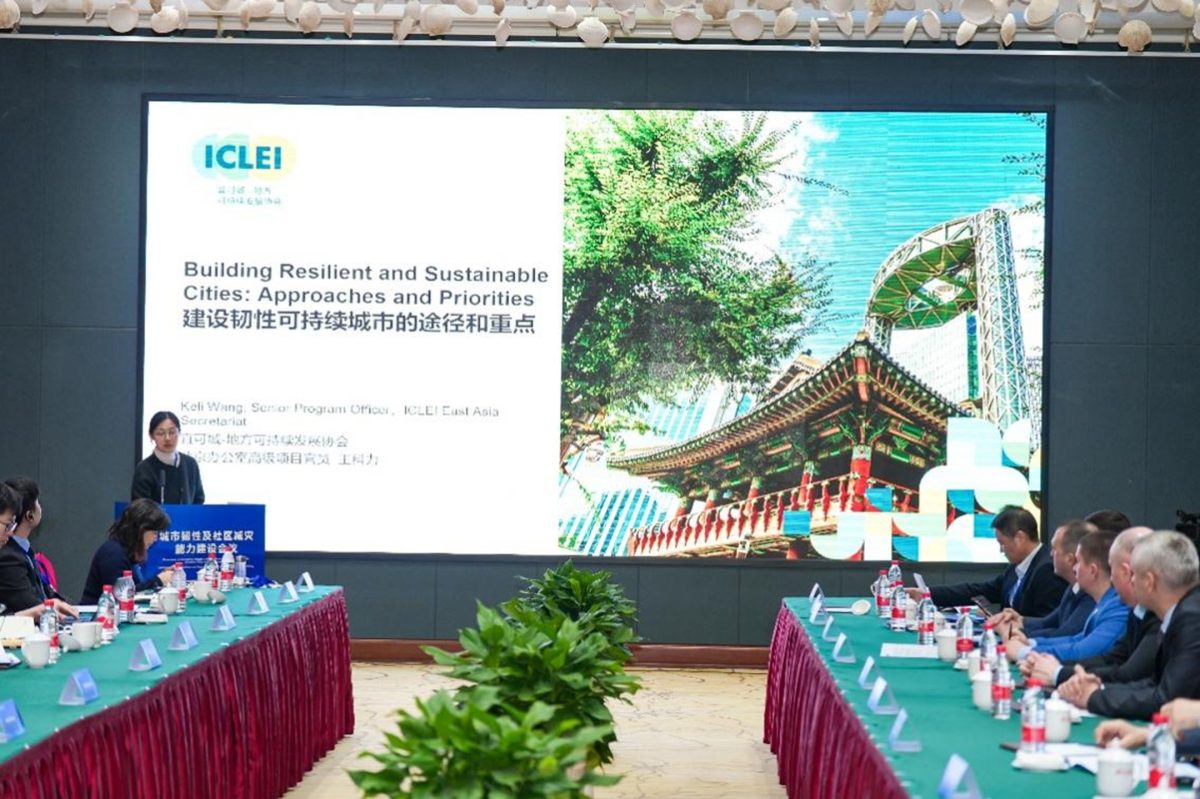
Ms. Keli Wang, Senior Project Officer at the ICLEI Beijing Office, delivering a thematic report.
The conference also featured a series of technical presentations and exchanges covering topics such as China’s policy initiatives for climate-resilient urban development, seismic resilience of urban water infrastructure, and the strengthening of flood and storm surge defenses in the Guangdong-Hong Kong-Macao Greater Bay Area. These sessions further enriched the discussions by addressing multiple risk types across different spatial scales.
Field Visit: On-site Inspection of Emergency Rescue Efforts in Dengfeng
During the field visit, delegates toured the Songshan Fire Rescue Station of the Dengfeng Municipal Fire and Rescue Brigade. Through a combination of on-site inspections, dynamic demonstrations, and case study reviews, participants gained an immersive understanding of the achievements in establishing a modernized fire rescue system. Delegates closely examined advanced firefighting equipment and specialized rescue gear, and observed simulated real-combat training in complex environments, including mountainous and high-altitude areas. A video showcasing actual rescue operations on Mount Songshan vividly highlighted the professional skills and collaborative capabilities of the teams under extreme conditions, providing participants with a concrete and in-depth understanding of grassroots rescue force development within the framework of “all-hazard and integrated emergency response.”
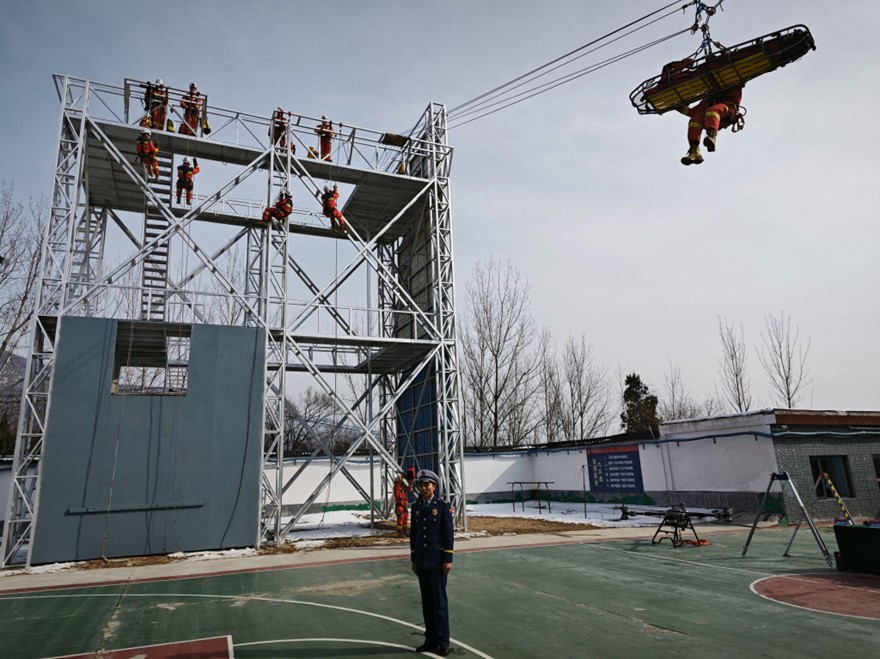
Field visit to the Songshan Fire Rescue Station of the Dengfeng Municipal Fire and Rescue Brigade.

Field visit to Leijiagou Village, Shaolin Subdistrict, Dengfeng.
During the in-depth community visit, delegates toured Leijiagou Village in Shaolin Subdistrict, Dengfeng, to inspect disaster risk prevention and control systems in a typical mountainous rural setting. They conducted field surveys of riverbeds susceptible to mountain floods and geological hazard hotspots on steep slopes, gaining detailed insights into local monitoring, early warning mechanisms, and dynamic risk management practices. The visit also focused on emergency shelters renovated from community public facilities, where participants evaluated the adequacy of emergency material reserves, functional zoning, and evacuation guidance plans. Through this hands-on investigation, delegates acquired a practical understanding of grassroots disaster reduction and emergency response strategies in complex terrain, providing a community-scale reference model for disaster risk governance in mountainous regions.




